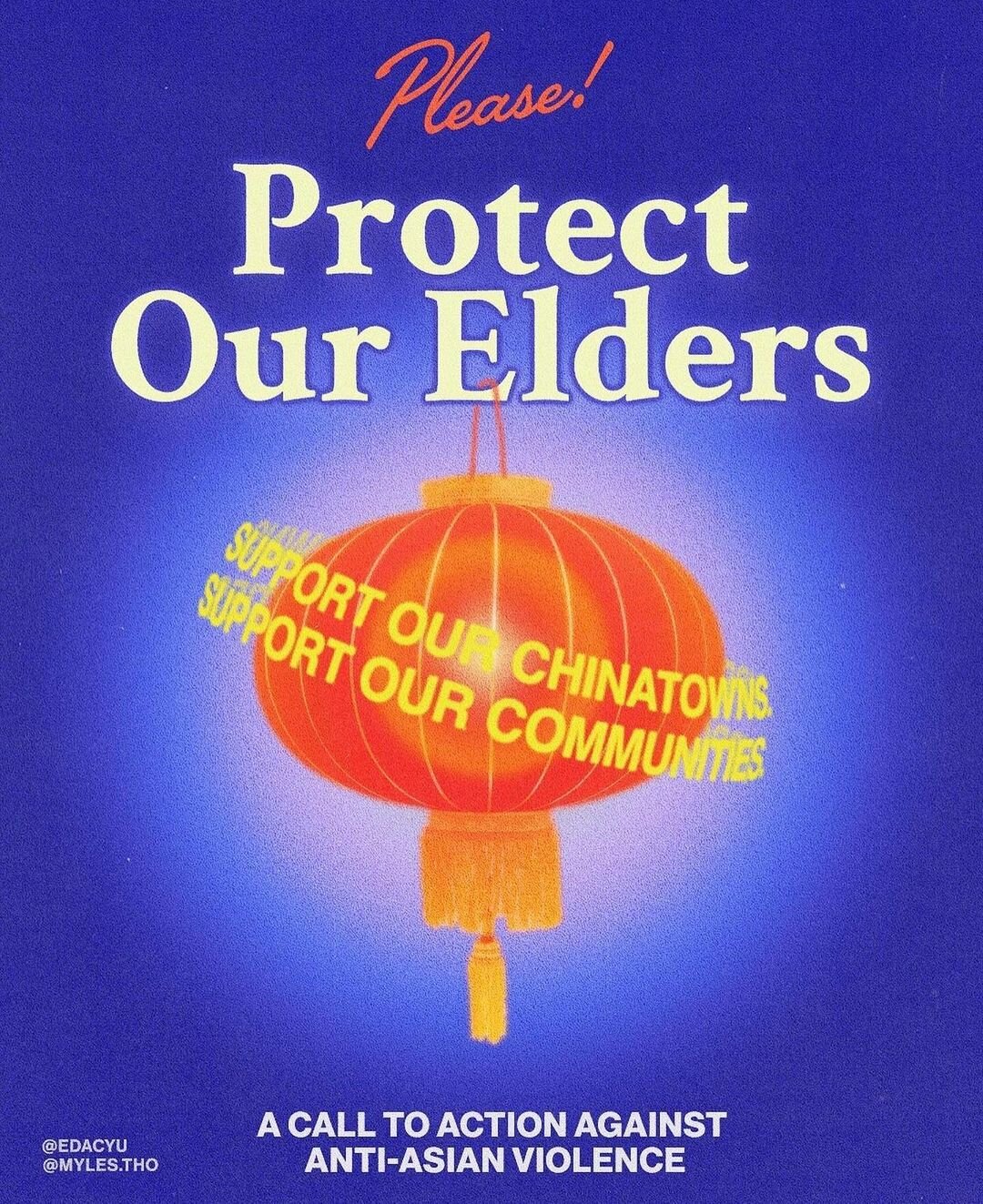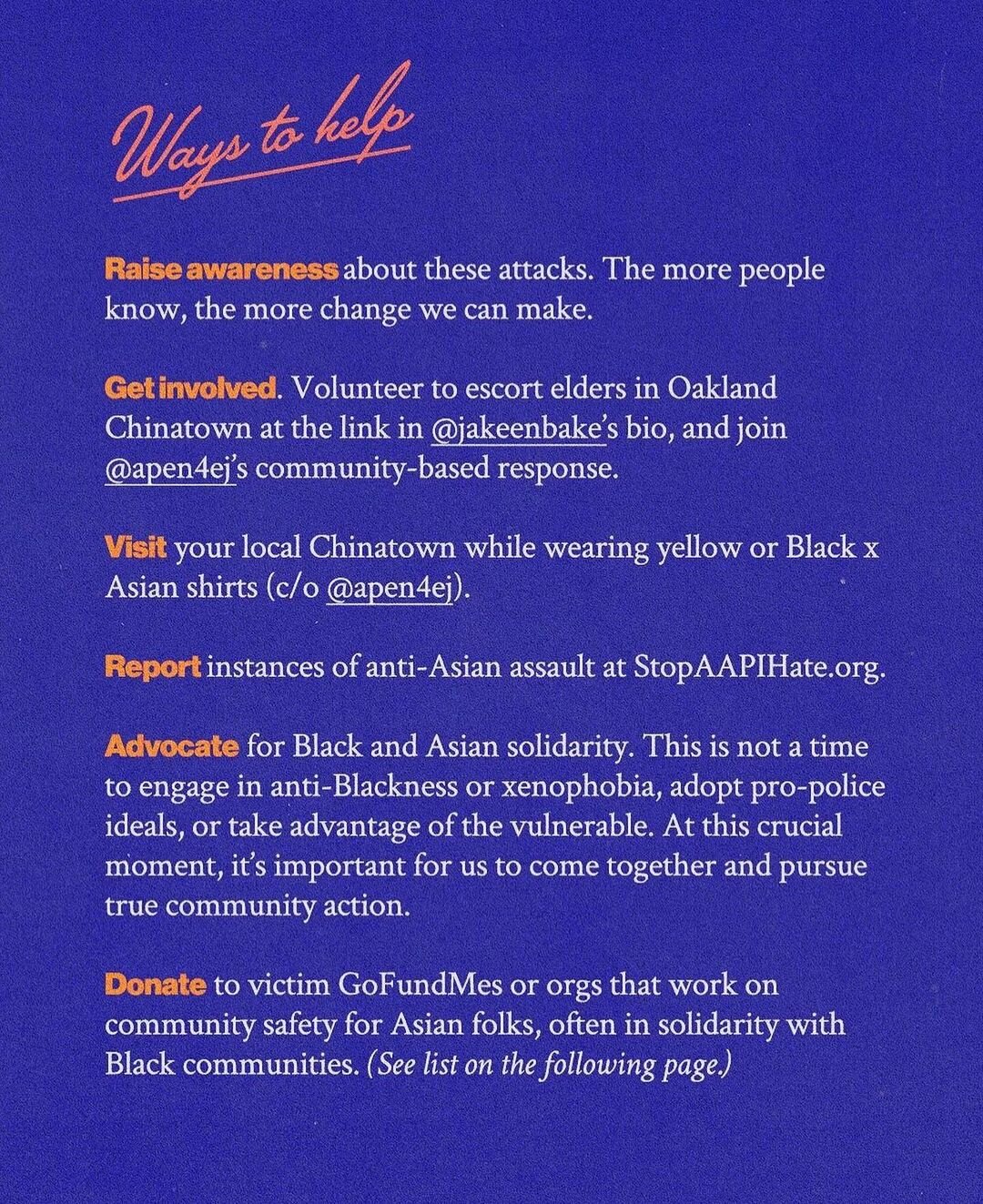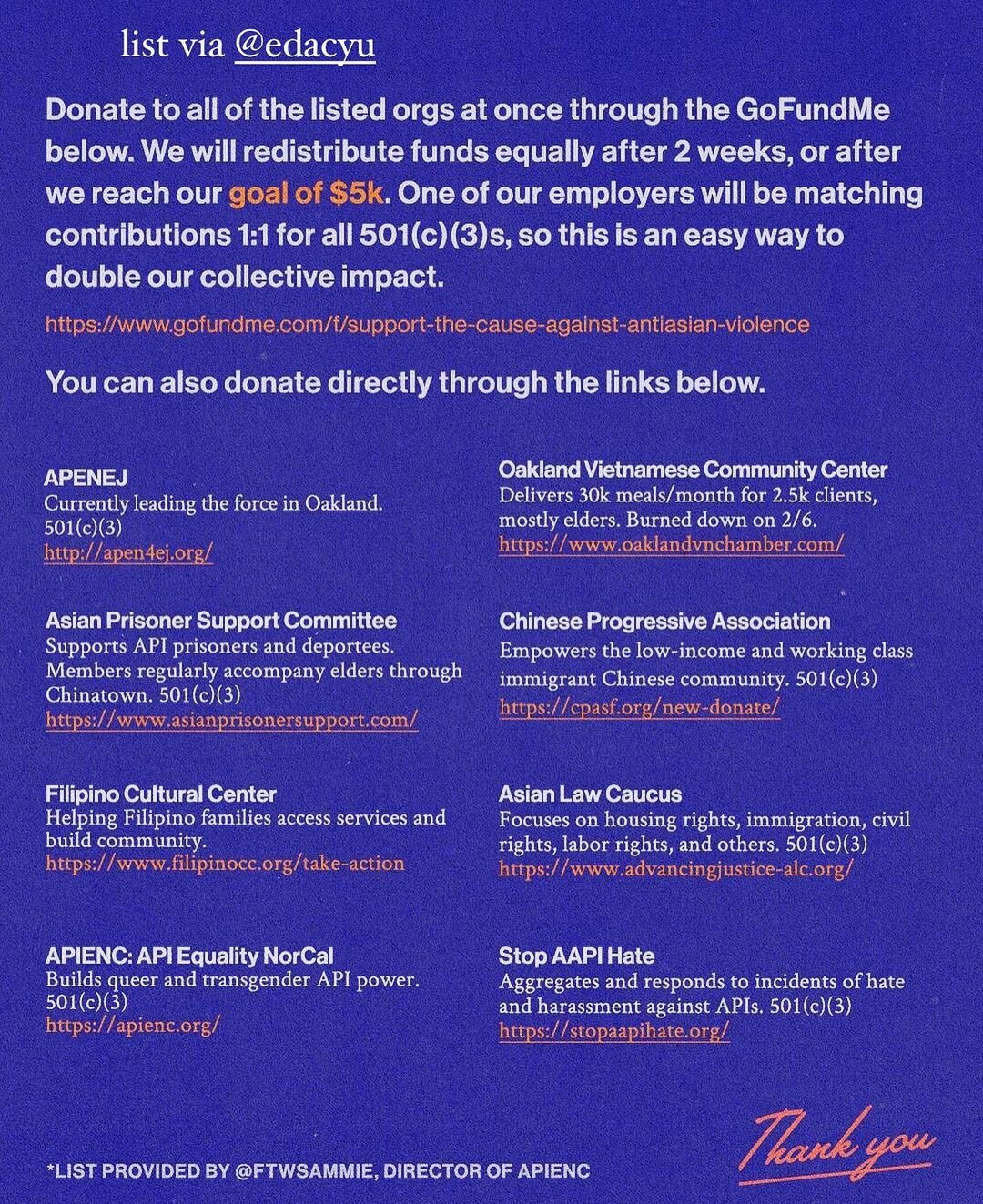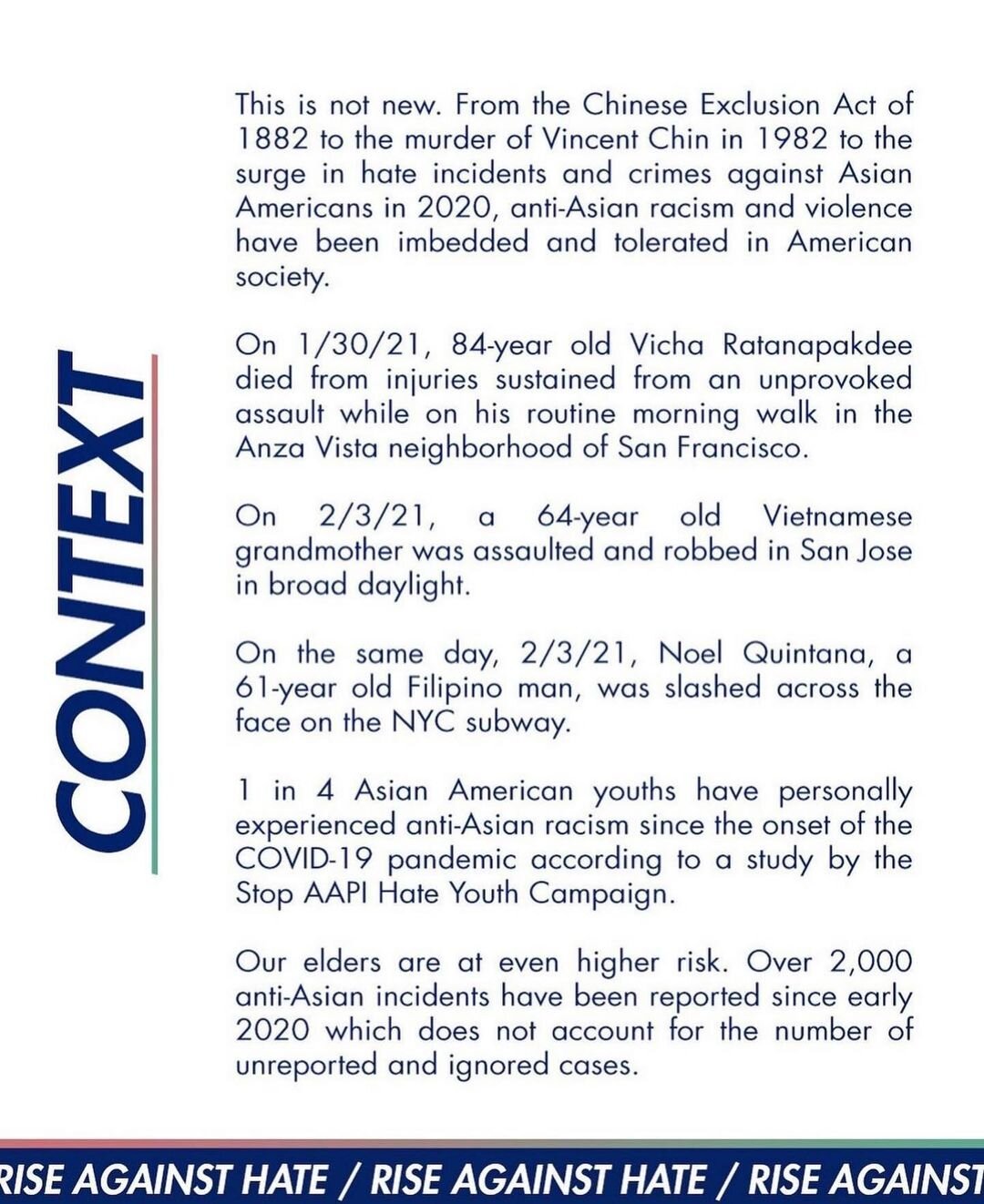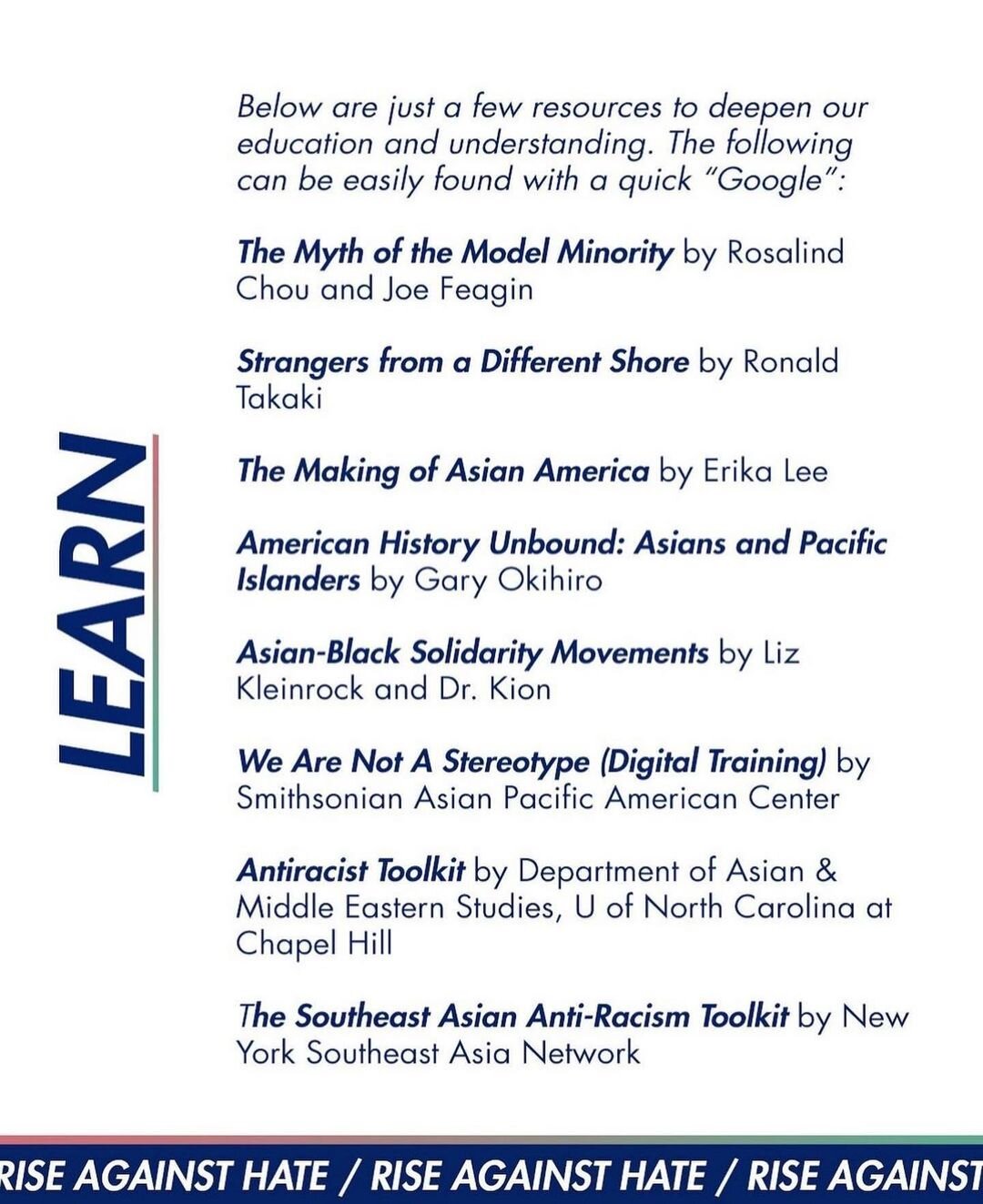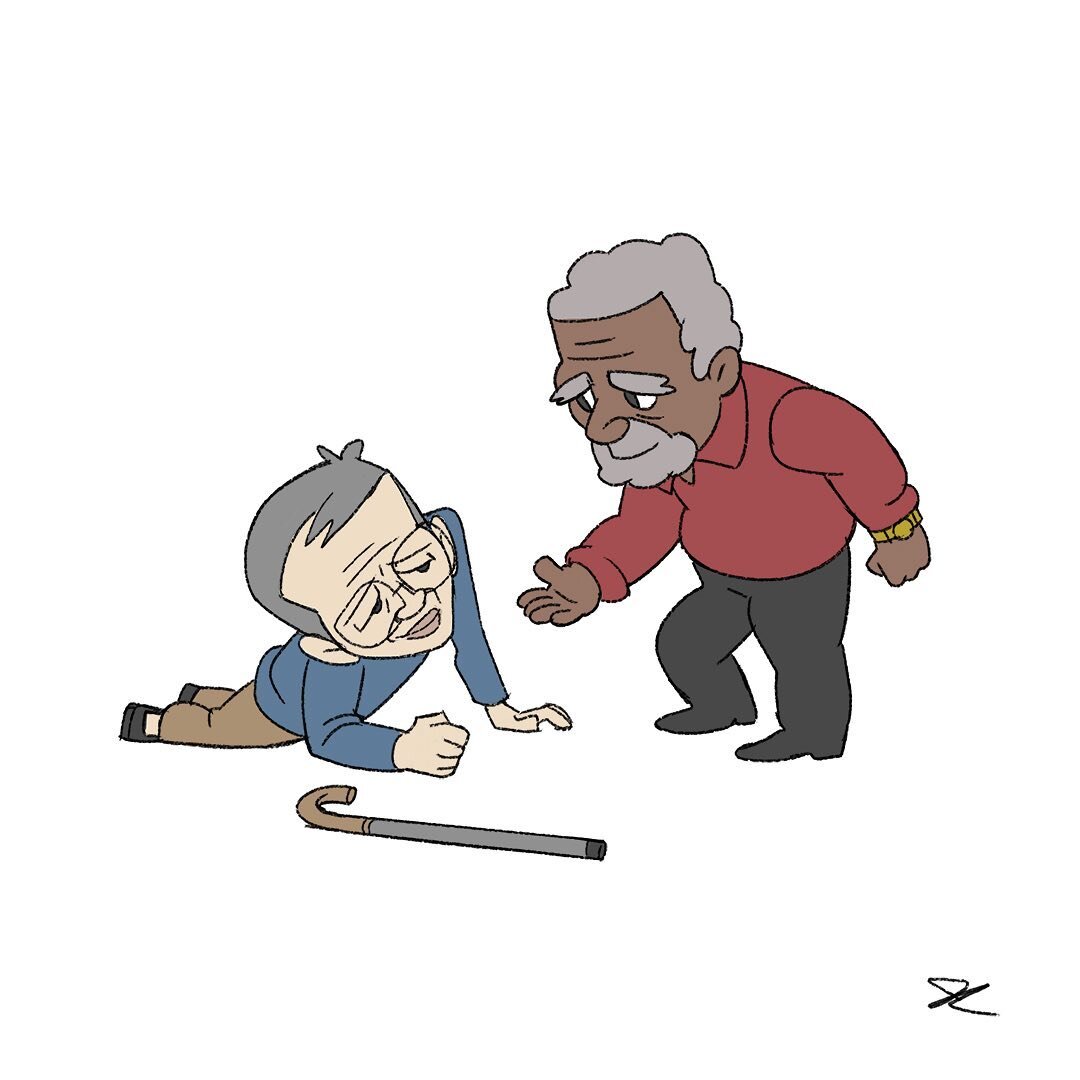Fighting anti-Asian backlash and anti-Blackness? Keep that same energy.
Our scheduled posts for Lunar New Year and Black History Month have been complicated to say the least. By now you’ve seen the viral video of Mr. Vicha Ratanapakdee’s attack which caused his death, while learning the new spike in violence towards Asian Americans, particular women and senior citizens, in just this past month alone. The pain that comes with hurting our elders is tied to the cultural reverence we have for them. 2020 was a stark reminder that even after Exclusion Acts, Miscegenation Laws, Internment Camps, and the death of Vincent Chin - Asian Americans continue to be scapegoats in the same country we live in. America has not been kind to us, nor to our fellow African Americans. One group is stereotyped as uncivilized and to be feared, the other, as foreign and to be ignored. What’s happening in our communities is both heartbreaking and enraging. Turning on each other, would be doing the divisive work. Turning towards each other however, is the step in the right direction.
And we’re getting somewhere. President Biden recently repealed the Muslim ban, signed into executive action the condemning of xenophobic language related to the pandemic and assigned the Justice Department to collect data on hate crimes and harassment directed at Asian Americans and Pacific Islanders. Of course it doesn’t end with an administration, so here’s a few proactive suggestions you can take on:
Take care of your elders. Talk to them daily, remind them they don’t ever have to be or feel alone. Shop for and/or deliver their groceries. Add visual exercises to help them be more aware of their surroundings. Volunteer to escort them on their walking routines. Demand resources be printed in bigger fonts, in their languages - our friends at @theseadproject already have Covid info projects in Southeast Asian languages and can be hired to design for your specific need.
Saying things like “But it’s been happening for a while now”, or “They don’t care about us, why bother?” only contributes to the invisibility of crimes against Asian Americans going unreported - so document, share and encourage. If you see something, say something. The more we know, the more we can change. Support victims of violence by offering translation, transportation to police stations, and trauma counseling. Start and manage a GoFundMe to help offset medical costs or legal fees. Another great resource is @stopaapihate
Diversify your feed, follow & organizations that have been sharing breaking news and doing justice advocacy work for Asian American communities. Donate to keep their important work going. Last year @hateisavirus was founded by Tammy Cho as a direct result of combating racism and xenophobia, and hosted fundraisers for various AAPIA orgs including Laos In The House. Here's a few more for Instagram: @apen4ej @ricefeed @dearasianyouth @unapologeticallyasian_ @asians4blklives @stopdiscriminasian @aaajalc @asianswithattitudes @18millionrising
Support your local Asian grocers and restaurants - take a step further and treat essential workers with meals from those same places.
Asian Americans have been organizing since our ancestors landed and to acknowledge the groundwork they've laid for us to be able to protest today is a continuation of that same fight to be seen and heard. Read up on your Asian American history, challenge your teachers, schools and academic leaders by asking about historic Asian Americans. Center your thesis or extra credit work around these historic moments. Celebrating cultural dances in May is cool but do you know about Yori Kochiyama?
Continue the work of anti-blackness in your own communities. Support Black-own businesses, partner up with Black community organizations and have these necessary conversations about advocacy, allyships and solidarity. Invite friends, neighbors and community leaders into your New Year celebrations by way of exchanging blessings for the future (while staying Covid-safe of course).
Illustration of Vicha Ratanapakdee and Older Black Gentleman Helping Fallen Asian Elder by Jonathan D Chang.


